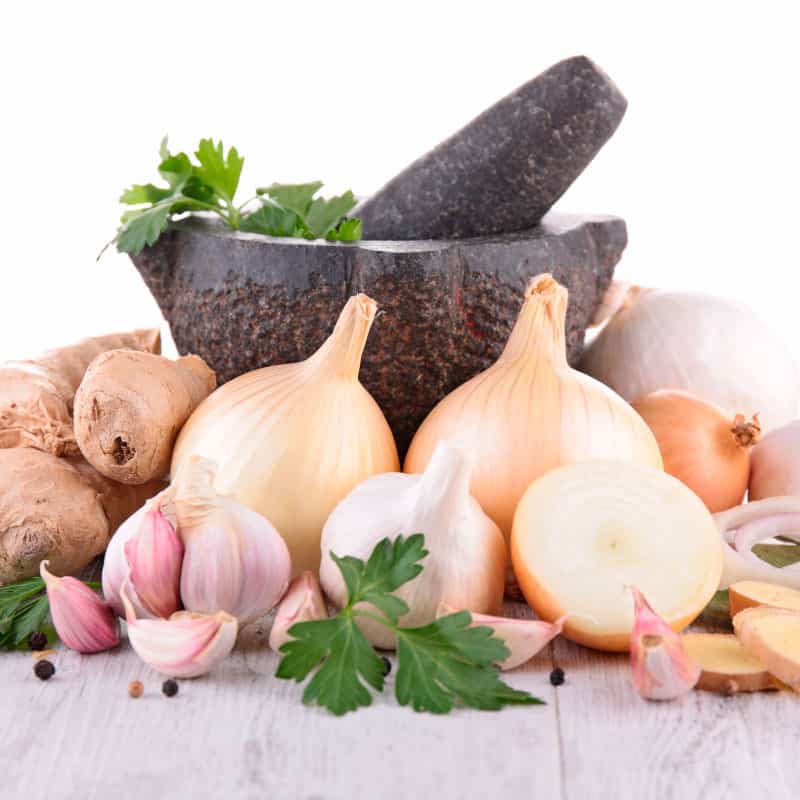This Dr. Axe content is medically reviewed or fact checked to ensure factually accurate information.
With strict editorial sourcing guidelines, we only link to academic research institutions, reputable media sites and, when research is available, medically peer-reviewed studies. Note that the numbers in parentheses (1, 2, etc.) are clickable links to these studies.
The information in our articles is NOT intended to replace a one-on-one relationship with a qualified health care professional and is not intended as medical advice.
This article is based on scientific evidence, written by experts and fact checked by our trained editorial staff. Note that the numbers in parentheses (1, 2, etc.) are clickable links to medically peer-reviewed studies.
Our team includes licensed nutritionists and dietitians, certified health education specialists, as well as certified strength and conditioning specialists, personal trainers and corrective exercise specialists. Our team aims to be not only thorough with its research, but also objective and unbiased.
The information in our articles is NOT intended to replace a one-on-one relationship with a qualified health care professional and is not intended as medical advice.
Keto Diet for PCOS: Research Finds Potential Benefits for Fertility
January 8, 2024

The No. 1 cause of female infertility in the United States is polycystic ovarian syndrome (PCOS), a hormonal condition that causes women to either not ovulate or go through irregular ovulation. According to the Centers for Disease Control and Prevention, up to 5 million women of reproductive age in the U.S. are affected by this condition, leading many women and couples to look for ways to overcome issues related to this hormonal disruption.
We know diet plays a role in a just about all aspects of health, so researchers from Malaysia took a look at potential dietary changes that may be able to help increase fertility rates for women with PCOS. More specifically, they examined the effects of the ketogenic diet on PCOS outcomes, and what they found was promising.
Keto Diet for PCOS Results
Published in the Journal of the Endocrine Society in September 2023, researchers pooled together clinical trials from Scopus, ScienceDirect, Web of Science and PubMed on the effects of the keto diet for PCOS. The “data were pooled using a random-effects model,” according to the study.
After examining all this data, the study authors determined that following at least 45 days of intervention with the keto diet for PCOS-diagnosed women, “significant improvement was observed in reproductive hormone levels,” including lower free testosterone levels, reduced follicle-stimulating hormone ratios — which could improve ovulation — and increased serum hormone binding globulin levels.
In addition, “significant weight loss was unanimously observed in all included studies.”
“We found an association between the ketogenic diet and an improvement in reproductive hormone levels, which influence fertility, in women with PCOS,” said study author Karniza Khalid, M.B.B.S., M.Med.Sc., of the Ministry of Health Malaysia in Kuala Lumpur, Malaysia, in a press release from the Endocrine Society. “These findings have important clinical implications, especially for endocrinologists, gynecologists and dieticians who, in addition to medical treatment, should carefully plan and customize individual diet recommendations for women with PCOS.”
This led the authors to conclude that “short-term ketogenic diet potentially improved hormonal imbalances commonly associated with PCOS.”
How to Eat Keto for PCOS
If you or your loved one suffers from PCOS and is looking for a natural way to help potentially overcome symptoms, eating more keto diet foods is a good start. Here are some of the top foods to eat when following a keto diet for PCOS:
- Healthy fats, especially keto fats like omega-3s. These include foods like MCT oil, coconut, palm fruit, olive oil, flaxseeds, macadamia, butter, ghee, avocado oil, cocoa butter, etc.
- High-protein foods, such as grass-fed beef, organ meats, poultry, cage-free eggs and wild-caught fish.
- Non-starchy vegetables, such as leafy greens, cruciferous veggies, celery, zucchini, chives, leeks, some fermented vegetables and fresh herbs.
- Low-sugar fruit in small quantities, including berries and avocado.
- Bone broth.
- Healthy condiments, like unsweetened hot sauce and apple cider vinegar.
- Water.
- Black coffee and tea.
What food should you limit or avoid when following a keto diet for PCOS? The following foods should be consumed only on a limited basis:
- Full-fat dairy
- Medium-starchy vegetables
- Beans and legumes
- Nuts and seeds
- Most fruit
- Most condiments
- Fresh vegetable juice
- Unsweetened almond or coconut milk
- Bouillon
- Water with lemon and/or lime juice
Here are foods that are typically off-limits when following the keto diet for PCOS:
- Sugar, including syrups, honey, agave and other sugars
- Grains
- Most non-berry fruits
- Processed foods
- High-calorie and sweetened drinks
Other Ways to Manage PCOS
In addition to following a keto diet for PCOS, there are other natural ways to help manage this condition. These include:
- Getting enough rest
- Exercising
- Avoiding endocrine disruptors, such as pesticides, bisphenol A, phthalates, dioxins, phytoestrogens, DEHP and DBP
- Supplementing with inositol
- Trying acupuncture
- Getting more vitamin D
- Using potential PCOS supplements, like magnesium, zinc, calcium, omega-3s, chromium, N-acetylcysteine, folic acid and ashwagandha







